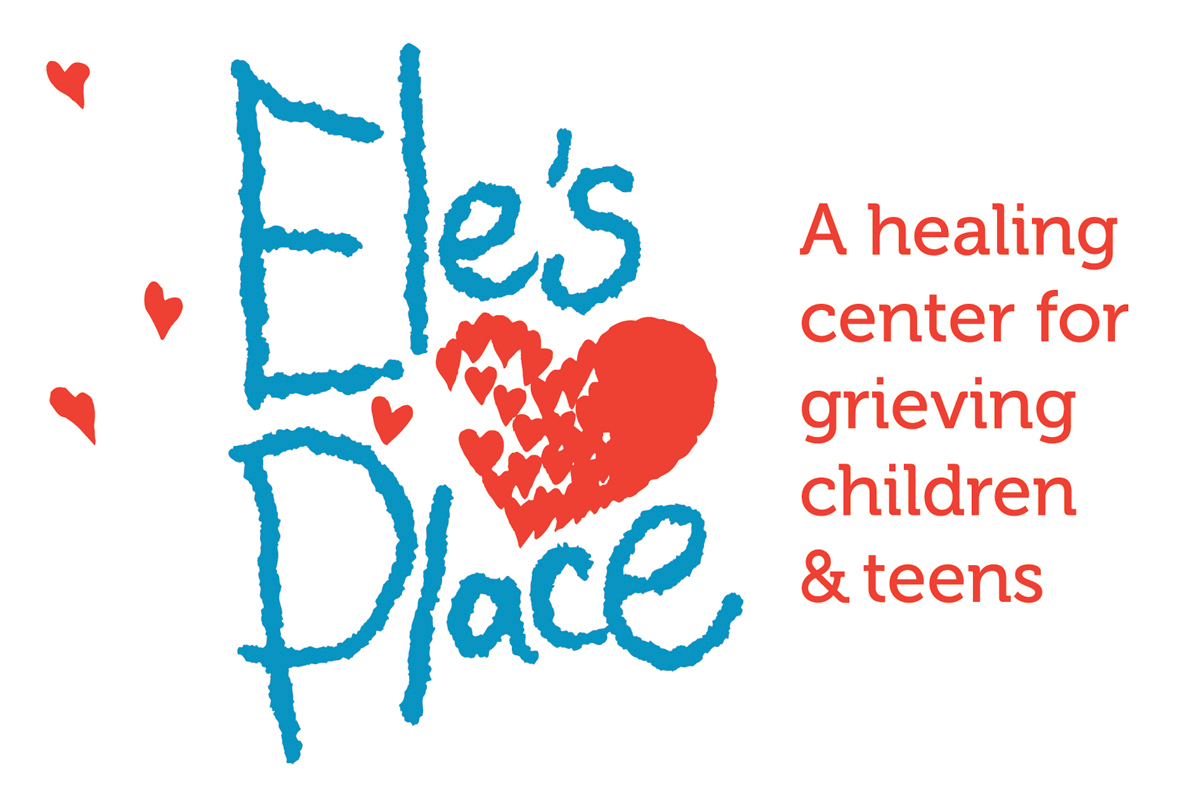Resources
We at Ele's Place know that there are as many reactions to grief as there are people. Because everyone is different, different support can help different people in vastly different ways. To that end, Ele's Place is committed to collaborating with other community organizations (such as schools, funeral homes, other bereavement services, hospitals, and law enforcement agencies, to name a few) to offer the very best of services to all grieving children in Michigan. If your family needs support beyond what Ele's Place can provide and we know of an organization that can help, we will gladly provide that information. Because there are many facets to grief, we have listed some resources below that may be valuable to those who grieve.
Websites
- American Hospice
- The Dougy Center
- The Moyer Foundation
- National Alliance for Grieving Children
- The Compassionate Friends
- Forums.grieving.com
- Griefnet.org
Books
- Common Threads of Teenage Grief by Janet Tyson
- Healing Your Grieving Heart for Teens by Alan Wolfelt
- Lifetimes: The Beautiful Way to Explain Death to Children by Bryan Mellonie
- Straight Talk About Death for Teenagers by Earl Grollman
- Tear Soup: A Recipe for Healing After Loss by Chuck DeKlyen and Pat Schwiebert
- The Tenth Good Thing about Barney by Judith Viorst
- When Dinosaurs Die: A Guide to Understanding Death by Laurie Krasny Brown
- When Someone Very Special Dies: Children Can Learn to Cope with Grief by Marge Eaton Heegaard
Handouts
Teens Coping With Suicide Loss
Suicide is often surrounded by silence and shame; it is hard for most people to understand and even harder to cope with. As a teenager, you are already faced with many difficult obstacles that challenge your ability to move forward, including dating, getting good grades in school and succeeding in sports. It is a very stressful time in anyone’s life. Dealing with a death on top of all of this may seem impossible, but it is important to know that you are not alone and that there are people just like you who are also learning to cope with a suicide death.
This outline is meant to help you better understand what you are currently going through and to inform you of the resources available to help you through the grieving process.
Suicide defined
Suicide is the act of taking one’s own life voluntarily or intentionally. Most often, people who complete suicide believe it is their only option. To them, suicide seems like the only way to stop their emotional pain. Suicide is often associated with mental illness or clinical depression, which can be a debilitating disease that causes severe emotional pain, hopelessness and the inability to seek help or believe that life can be any better. This is different from the sadness or pain felt after the death of a loved one.
Coping with the death
Oftentimes, suicide is surrounded with a negative stigma. People might feel embarrassed that their family member or friend would take their own life, or guilty because they believe they could have done something to prevent it. It is completely normal to feel these emotions plus many more, including sadness, loneliness, numbness, anxiety, and anger. Your feelings may be very intense and overwhelming at times. This is because grief after a suicide is often more complicated. There is no right or wrong way to handle the grief associated with suicide because everyone copes with the pain differently.
TIPS FOR COPING
- Talk with someone you trust
- Channel your feelings into activities
- Sports/exercise
- Listening to music
- Art
- Writing or journaling
- Video games
- Reach out to friends and family for support
- Educate yourself about depression, mental illness and alcohol or substance abuse if these factors may have contributed to the suicide
- Know that anger and other emotions are a normal part of grief
- Remember that grief is hard work- time alone doesn’t heal, you need to allow yourself to acknowledge and express your feelings
- Seek out professional help when needed
- Consider joining a teen grief support group
- Avoid drugs, alcohol and other detrimental behaviors
You are not alone
It is important to know that you are not alone in your grief. Organizations, like Ele’s Place, offer services at no cost to help teens just like you through the grieving process. For many, the ability to talk about the feelings that follow the suicide of someone close to you with others who have gone through a similar experience is extremely helpful in the healing process. Peer groups, like the one at Ele’s Place, allow teens to come together to remember their loved ones and talk about their emotions in a safe environment where they will not be judged.
Looking for answers
Suicide is usually unexpected, leaving many questions unanswered. Part of the healing process includes gradually coming to terms with the fact that you may never know the answers to these questions and that you may never completely understand what happened or why. There is no quick or easy way through this part of your grief journey, but learning more about suicide may help.
Life beyond the tragedy
The death of someone close to you, especially a suicide death, is a life-changing experience. You may be questioning everything you used to take for granted, and it may be hard to believe that you can ever be happy again. You will probably discover strengths you didn’t know you had as you struggle with feelings more intense than anything you’ve ever experienced. Be kind to yourself and seek out support as you learn how to move forward with your life. Allow yourself to experience moments of happiness and appreciation, and remember that help is available if you need it.
